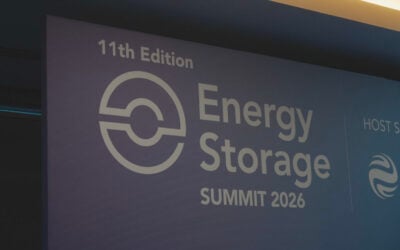
An auction for 700MW of grid energy capacity in Portugal is being configured to allow bids from solar and also solar-plus-storage projects to participate on a competitive basis, with guaranteed payments for energy storage co-located projects to use a capping mechanism in the event of ‘price spikes’.
The Portuguese government directorate general of energy and geology last week issued its competitive procedure guidelines for a tender that is to be conducted electronically online and in a process that it said will be “competitive, simple, open, transparent and swift”. The inclusion of energy storage options was reported in January by sister site PV Tech. A previous auction for 1.15GW of solar in 2019 set record-breaking low prices of €14.76/MWh (US$16.44/MWh).
While the government issued various guidance documents for the process, PV Tech reported on Friday that the auction is now to be postponed due to the COVID-19 crisis. Energy state secretary João Galamba told PV Tech’s Jose Rojo Martin that it will be “paused”.
“I don’t know if it will be a month or two months. The only thing I can say clearly is we are ready to go, we are just pausing for the general situation to calm down a bit. As soon as we sense the market is ready to participate in a full-fledged auction we will launch it,” Galamba said.
Try Premium for just $1
- Full premium access for the first month at only $1
- Converts to an annual rate after 30 days unless cancelled
- Cancel anytime during the trial period
Premium Benefits
- Expert industry analysis and interviews
- Digital access to PV Tech Power journal
- Exclusive event discounts
Or get the full Premium subscription right away
Or continue reading this article for free
“We want the auction to be as successful as the one last year so we will wait a little bit. It doesn’t make sense to launch it in the middle of this mess, especially since we are introducing the storage modality, which adds complexity”.
The auction is in line with the government’s Integrated National Energy Climate Plan (PNEC), which is Portugal’s “main instrument of energy and climate policy for the 2021-2030 decade,” according to the national energy ministry and meeting requirements determined by the country’s EU member state obligations. With placing an emphasis on the competitiveness of renewable energy up to 2030 as an interim goal, Portugal is targeting carbon neutrality by 2050.
Solar power plants, with, or without energy storage will be built that can inject energy into the grid at strategic locations in the Alentejo and Algarve regions of the country, in several batches totalling 700MW/MVA. Plants can have capacities between 10MW and 100MW each and could include battery energy storage, concentrated solar power (and therefore also thermal storage) and “other combinations”.
Power plant output will be connected to either the distribution and transmission grid, with 10MW minimum capacity for distribution grid-injecting plants and 50MW for transmission grid-injecting facilities. No one bidder, meanwhile, may bid for more than 50% of the total capacity put up for auction.
Solar and solar-plus-storage get different payout methods
As might be expected, there will be differences in the way power plant operators are compensated depending on whether storage is attached and co-located, or not. Perhaps the standout takeaway overall is that the government wants to prevent price spikes in the integrated Iberian Electricity Market (MIBEL) from impacting compensation to battery storage operators.
Solar power plants without storage will receive a guaranteed remuneration by selling produced energy at a fixed price to the state energy supplier CUR. Operators will have to pay certain fees such as for imbalances and use of transmission grid tariffs (URT), while they may also be subject to curtailment without additional compensation.
Standalone solar may be able to participate in ancillary services markets where applicable. In addition to fixed and guaranteed remuneration, they will also be able to sell production on wholesale power markets at market price, but will also have to pay compensation to the National Electric System (SEN) at a set price.
Meanwhile solar-plus-storage plants will receive capacity payment at set prices. In the event of price spikes in the MIBEL market – which runs in both Spain and Portugal – asset operators must pay the difference through activation payments. Any breach of contracted availability will incur penalty payments, while production can, like standalone solar plants, be sold into wholesale markets at market price.
The directorate-general stipulated that storage must constitute a minimum 20% of the total capacity of the injection point to the grid of the solar plant, and must have at least one hour of storage duration at the nominal power of the energy storage system. Management consultancy firm AFRY (formerly ÅF Pöyry) produced a presentation which goes into more detail on the pricing mechanisms including weighting and methodology, available alongside bidding instructions and other guidance documents, on the government’s official website for the renewable tender.
“We are creating the conditions for competitive storage projects to win but we are not ensuring that they will. They can beat the other two options but whether that happens will depend on the dynamics of the auction itself,” Portuguese energy state secretary João Galamba told PV Tech.
Additional reporting by Jose Rojo Martin.
Read about the coronavirus-induced delay and more about the auction design from a policy perspective over at the PV Tech site.





